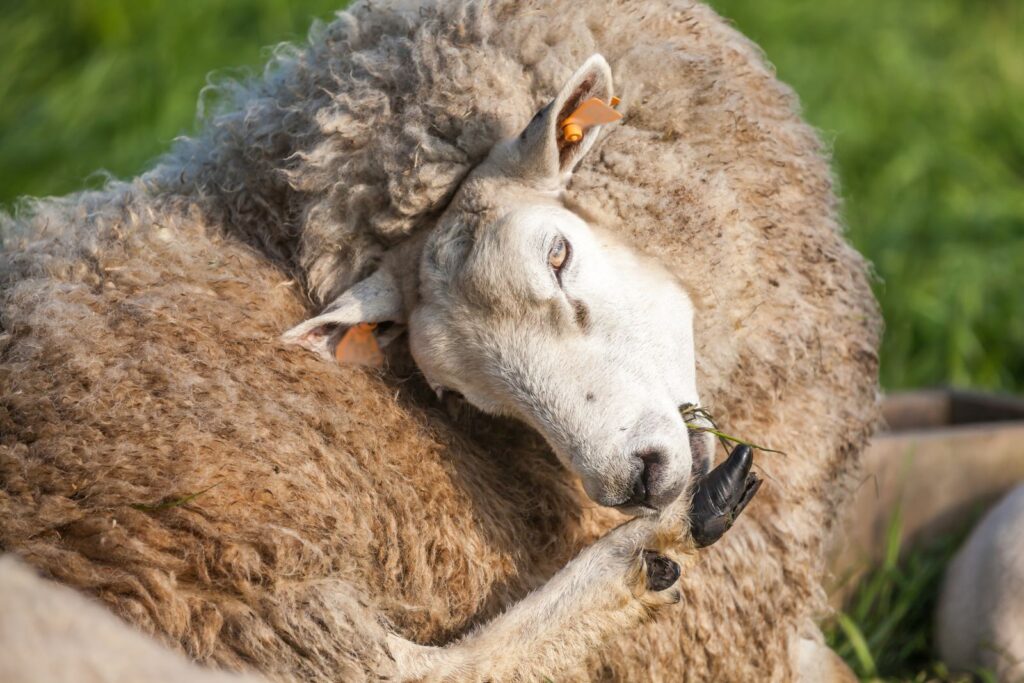Changes to sheep dipping Code of Practice promote safe use of OP dips
8th September 2023
Sheep dipping contractors, farmers and prescribers are being urged to make themselves aware of the latest updates to the Mobile Sheep Dipping Code of Practice, which aim to ensure the ongoing effectiveness and safe use of organophosphate (OP) dips in the UK.
At a webinar led by SCOPS (Sustainable Control of Parasites in Sheep) yesterday (7th September), speakers discussed what the changes mean for farmers, contractors and other industry stakeholders and emphasized the importance of prolonging the effectiveness of OP dips for treating diseases such as sheep scab.
Opening the event, independent sheep consultant Lesley Stubbings said it was ‘good news’ sheep scab mites resistant to injectable 3-ML endectocides are still susceptible to OP dips, which is why it’s more important than ever to use the chemicals properly.
In recent years, rising resistance to endectocides, increasing cases of sheep scab and falling numbers of farms with dipping facilities/licences have all led to more producers using mobile sheep dipping services.
Ms Stubbings said: “The increased use of professional mobile dippers is a positive move for the industry – but means sheep farmers, contractors, and prescribers all need to know what is expected of them to ensure this option is effective in treating sheep, safe for human operators, and does not negatively impact the environment.”
Stephen Dawson of the Animal Medicines Training Regulatory Authority (AMTRA) said legislation around prescribing of OP dip very clearly outlined what information the prescriber had to collect from and provide to the owner of sheep being dipped – but therefore meant contractors as an intermediary were ‘not particularly well covered’.
The updated Code of Practice provides much-needed clarity for contractors, and means that those willing to sign up to the code can now purchase up to seven days’ supply of OP dip for a week’s worth of dipping work on multiple farms.
“For the first time, the code clarifies what is expected of contractors and what the interaction between a contractor, as an intermediatory, and the prescriber should entail,” Mr Dawson said.
“There is now a clear expectation that prescribers cannot supply and contractors cannot buy dip for more than one farm unless the code is followed.”
Jill Hewitt of the National Association of Agricultural Contractors (NAAC) urged farmers to only use contractors with valid insurance and qualifications who are also signed up to the Code of Practice to ensure they get a safe and effective servise.
“Also discuss beforehand who is going to dispose of the spent dip, how the correct records are going to be kept and what the cost will be,” she advised.
“It is also essential you check first that they are definitely going to plunge dip the sheep and not use a jetter or shower,” Ms Hewitt added.
Plunge dipping is vital to effective treatment
Ms Stubbings explained using OPs through a shower or jetter is not only ineffective, but is also likely to spread infection further and increase the risk of resistance.
“Treatment by a shower or jetter might initially appear to have worked because it suppresses a scab infection, but that is extremely dangerous,” she stressed.
“The owner might then move the sheep, thinking they’re scab free and unwittingly spreading infection further, while exposing scab mites to a sub-lethal dose encourages the development of resistance.”
All speakers emphasised that it is not legal to supply or use OP dip via a jetter or shower; the product is only licenced as a plunge treatment as it needs to get right down to the animal’s skin to kill the mites.
Bryan Lovegrove of the Animal Health Distributors Authority (AHDA) said: “It is illegal to use dip through showers and jetters. We can no longer shy away from that.
“OP resistance is a reality in other parts of the world and we cannot risk it here. Prescribers supplying it for this use and contractors continuing to offer the services should be reported to VMD [Veterinary Medicines Directorate].”
The Mobile Sheep Dipping Code of Practice is produced by SCOPS, NAAC, AHDA, AMTRA and the National Sheep Association (NSA), supported by Bimeda, Farmers Union of Wales, NFU, NFU Cymru and NFU Scotland.
It can be accessed at www.scops.org.uk/external-parasites/code-of-practice-for-mobile-dippers.

